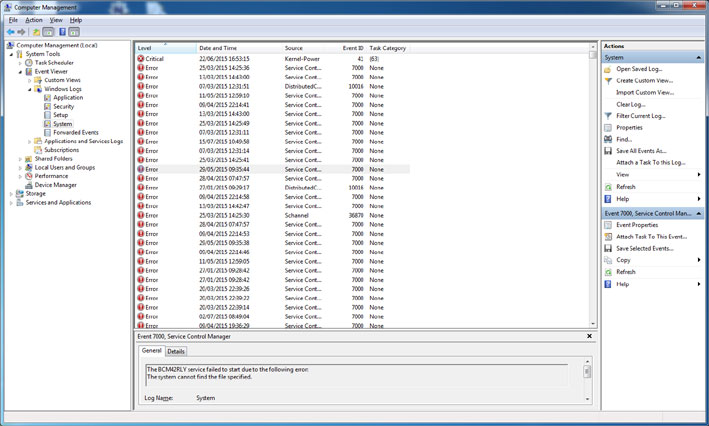From my service pages you can see I offer a wide range of services and much of the assistance I provide is to remove malware, viruses, adware and spyware. This includes supporting customers who have been on the receiving end of a telephone scam.
So what is a telephone scam?
These sorts of scams rely on the ability to trick someone into believing the call is genuine and then persuading them to make a payment to fix a bogus computer problem.
Forewarned is forearmed.
The telephone caller is likely to say he or she is calling from Microsoft or Windows tech support or from any other well known company such as BT, to give the opening impression they’re legitimate. If you don’t hang up at this point (and you should) they will then ask if your computer has been running slowly or having difficulties. They will claim they have received reports your system is experiencing problems, is likely to be infected with a virus and that they are calling to help fix it.
Who doesn’t have a pc that runs slowly or plays-up (that’s the technical term) from time to time? Because of this the call seems plausible and you might just be tempted to believe them, which is what they’re hoping for, but remember they’re not monitoring your computer and have absolutely no idea how it’s performing at any time.
To prove their claims they may direct you to a reporting tool which can be found on all Windows operating systems called the Event Viewer. The Event Viewer tracks and logs many system incidents which have various levels of importance (see below for a screen shot that shows the sort of thing you could expect to see). When viewed out of context the report can appear very alarming so based on this the caller will advise you that your system is heavily corrupted or infected and will need to be fixed.
Screen shot showing the Event Viewer and logs of system incidents;

If you agree to allow them to find a solution you will be asked to open Internet Explorer (or whichever browser you use) type a web address (URL) into the address bar and link you to a site and a program which allows them to take control of your computer. The caller will then appear to be scanning for infections and conclude that yes, your system is heavily corrupted and will give you the price to repair it. They will ask for your credit or debit card details so that they can collect payment to solve a problem that doesn’t exist.
What happens if you refuse to pay?
If they still have control of your computer at this point and you refuse to pay they can lock your system and demand payment for its release. If it gets this far there is still no reason to pay a penny; although it seems catastrophic a locked system can still be repaired and reset or in the worst case scenario your files retrieved and the system recovered.
Get Help.
For help and advice call me on 01452 506529 and if you have been the victim of this type of scam don’t feel hopeless at not being able to spot the deception; they can be very convincing and aggressive and they target people they believe to be vulnerable. Report the call to the ActionFraud website: http://www.actionfraud.police.uk/ and if you’ve divulged financial information contact your bank immediately.
A good site that provides practical advice on personal and computer safety is Get Safe Online and can be found here: https://www.getsafeonline.org